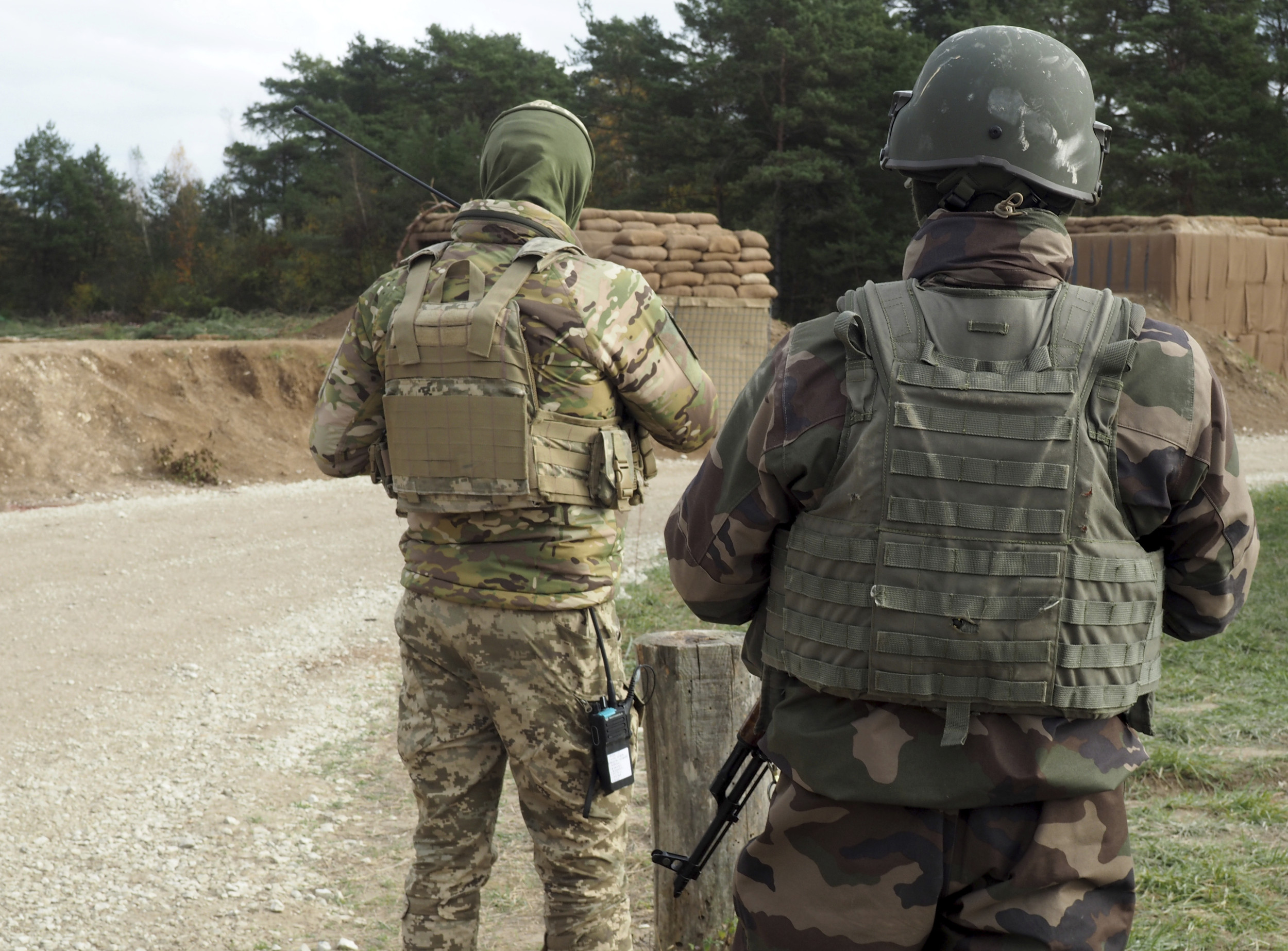The Israel Defense Forces' strikes on Iran have critically damaged the country's weapon production ability, according to the Institute for the Study of War (ISW).
The nonprofit research group and advocacy think tank reported that the IDF's strike on Iran on October 25 resulted in damage to Iranian military infrastructure, which has disrupted the country's ability to produce "certain kinds of ballistic missiles for itself and its partners as well as by severely degrading Iran's ability to defend against future air attacks."
The Israeli army's attack on Iran was one of a series of recent attacks between the two countries as tensions in the Middle East due to the conflict in Gaza have escalated, and Iranian forces have vowed vengeance.
Newsweek reached out to the Institute for the Study of War, the IDF and the Embassy of the Islamic Republic of Iran in London via email for comment outside of business hours.
Newsweek was unable to reach the Ministry of Foreign Affairs of the Islamic Republic of Iran for comment.
The IDF conducted "precision strikes targeting around 20 locations across Iran, including facilities tied to the Iranian drone and missile programs and air defense network," including the Khojir military complex and two Iranian Ghadir passive array detection radar sites, last month and initially did not appear to cause much damage, said the ISW's report.
These attacks could have compromised Iran's ability to produce weapons to ship to the Axis of Resistance, specifically to Hezbollah and the Houthis in Yemen, and Russia. The Axis of Resistance is a network of forces across the Middle East that is supported by Iran.
Iran has been providing Russia with solid-fuel Fateh-360 missiles ballistic missiles for the country's war with Ukraine since September.
The strikes not only could have affected Iran's ability to ship ballistic missiles to allies, but they also left the country more vulnerable to future Israeli attacks as they rendered Iran's four S-300 air defense systems inoperable.
The S-300 air defense systems are reportedly the most sophisticated Iran has and were supplied by Russia in 2016.
In response to the IDF's strikes on October 25, the Ministry of Foreign Affairs for the Islamic Republic of Iran said in a statement that it "condemns in the strongest terms the Zionist regime's acts of aggression against a number of military sites in Iran as a blatant violation of international law and the United Nations Charter, particularly the principle prohibiting the threat or use of force against the territorial integrity and national sovereignty of countries."
It continued, "As repeatedly emphasized by the competent authorities of the Islamic Republic of Iran, based on the inherent right of self-defense, as also reflected in Article 51 of the United Nations Charter, the Islamic Republic of Iran considers itself entitled and obliged to defend against acts of external aggression."
The statement also accused the United States of providing military and political support to "the continuation of occupation, illegal actions, and crimes by the Zionist regime in the region, particularly the genocide against the Palestinian people and aggression against Lebanon." The ministry urged the global community to "stop the Israeli regime's genocide, war, and aggression against Gaza and Lebanon, and to rein in the regime's warmongering."
Iran has reportedly vowed to seek revenge following the IDF's latest attack, and senior military officials have said they will conduct similar missile attacks like the ones in April and October.

The Institute for the Study of War said that "recent reports also suggest that Iran may conduct a combined attack with Iranian-backed Iraqi militias from Iraqi territory." Consequently, U.S. troops might join the battles as the conflict would be expanded to include Iraq.
The series of retaliatory attacks between Iran and Israel began in April when the IDF killed senior Iranian Revolutionary Guard Corps (IRGC) officer General Mohammad Reza Zahedi, along with others, in airstrikes in Syria.
Iran then attacked Israel by launching more than 300 drones at Israel, as well as cruise and ballistic missiles, in the first direct Iranian attack on the Middle Eastern country.
The series of attacks continued over the months, including the IDF's strike against an S-300 air defense system in Esfahan, the IDF's assassination of Hamas Political Bureau Chairman Ismail Haniyeh in July, and the IDF's killing of Hezbollah Secretary General Hassan Nasrallah and IRGC Operations Deputy Abbas Nilforoushan in Lebanon in September.
More recent attacks also include Iran's launch of approximately 180 missiles at Israel in early October and Israel's latest attack on October 25.



















)
 English (US) ·
English (US) ·